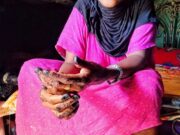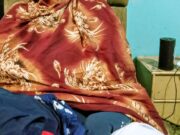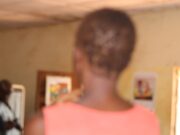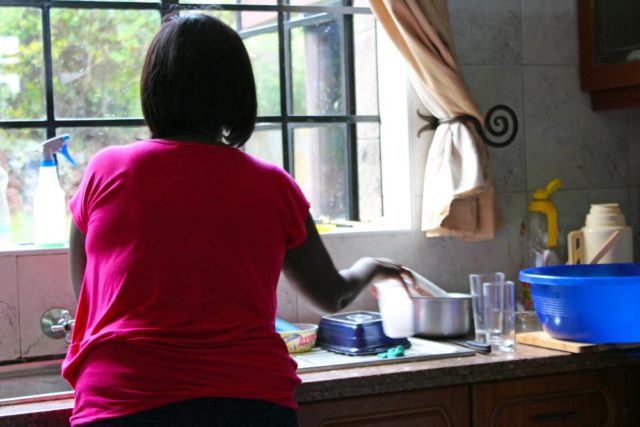How I Lost my Wife
By Maryanne W. Waweru l wawerumw@gmail.com
Wilson Irungu, 42, is a local Administrator in Kiambu County. He is also a widower, raising his three children in Kenya’s capital city, Nairobi. Wilson lost his wife to maternal health complications in June 2022, soon after delivering their lastborn child. I had a chat with Wilson, where he talks about how this unfortunate event happened.
Maternal death is defined by the World Health Organization as the death of a woman while pregnant or within 42 days of termination of pregnancy from any cause related to or aggravated by the pregnancy or its management.
This is Wilson’s story.
“When my wife fell pregnant with our thirdborn child, we were both very excited. Our first two children had a birth spacing of seven years, something that we had both agreed on. Our third child was equally well planned for, coming seven years after our second born.
It was my desire that we would have another son so that I would name my father-in-law, in line with Kikuyu traditions. We already had a son and a daughter –both named after my parents, so this time round I hoped we would name my wife’s father.
Baby was too big
My wife’s pregnancy was smooth with no complications, like her two previous ones. However, the challenge, which lead to her untimely demise, started when she went into labor.
She called me at about 3am informing me that the nurses had told her that the baby was big, which presented a challenge for a natural birth. They also said that the baby was tired and in distress.
The medics had advised her to undergo a caesarean section, something she was hesitant about because of the risks any surgery carries. Her two previous births had been natural, so we had never had to worry about this before.
But since it was the doctors advising it, and considering that she had already been in labor for a while, we heeded their advice and consented to the surgery.

Bouncing baby boy
When I talked to my wife a few hours later at 7am, her mood was very upbeat. She had delivered a healthy, bouncing baby boy! We were both overjoyed as she congratulated me on my wish for a baby boy. I congratulated her too on the successful birth of our son and told her I couldn’t wait for her to recover and be back on her feet again.
Three days later, she was discharged from the hospital.
Severe pain and bleeding
Two weeks later, just before the follow-up/review appointment she had been given by the hospital, my wife expressed some concern. She told me that she was still bleeding very heavily, which she thought was unusual. She was also in a lot of pain.
While she had been on a cocktail of drugs, including antibiotics and painkillers, and had already completed the dose, she was worried that the bleeding was still heavy, and so was the pain.
Something just didn’t seem right, she said.
When she told me this, we quickly returned to the hospital where she had delivered. Upon examination, the medics told us that while the wound was healing well on the outside, the inside still needed some more time.
They told us that it appeared she had some clots and prescribed more medication. They assured us that the situation was not alarming, and that all would soon be well. We left relieved, because we trusted their word.
Persistent unbearable pain
Unfortunately, we returned to the hospital just two days later when my wife’s pain become unbearable. The medics tried explaining to us what was happening, but it was basically a lot of technical jargon which we could not understand.
All I asked of them was to admit my wife for closer observation because I felt she would be safer at the hospital with their close monitoring and urgent action in case of anything. But they refused to do so, insisting that the situation was not alarming and that she could recover well at home.
We were somewhat 50/50 about going home, but they kept reassuring us that there was nothing to worry about. Since they were the experts, we returned home, albeit half-heartedly.
On standby
Once home, and with the medic’s assurance that the situation was not alarming, I travelled to Nyeri to my in-law’s place as there was some work I was undertaking with them. I would be back in a few days.
I left Nairobi on an early Monday morning and remained in constant communication with my wife. I would check on her every few hours. She would tell me that she was still in some pain, but that if it got worse, she would let me know. I told her that I was on standby to rush back in case the situation got worse.
Two days later, my wife told me that the pain was still bad. While she wasn’t bleeding anymore, the pain was horrible. I told her that I would come immediately but since Nyeri to Nairobi is about three hours away, I would in the meantime organize for a neighbourhood taxi to take her to hospital right away.
She however said that the pain was somewhat still bearable, so I didn’t need to come to Nairobi or send for the taxi. She told me she would give me a proper update the following day.

“I’m dying”
The call that would change our lives forever came very early the following morning at about 3.45am.
“I’m dying” were the words that my wife said to me.
Frantic, she told me that the wound from the caesarean section had burst, and she was now bleeding profusely.
Panicky, I called a neighbour and asked him to rush to the house and take her to the hospital as I made my way back from Nyeri. I then called my wife again and told her that I was sending for help and that I was on my way.
My neighbour took just a few seconds to get to our house and when they got there, found my wife had collapsed on the floor. He quickly rushed her to the hospital –the same one she had delivered.
At the hospital, it was established that my wife was bleeding internally as her CS wound had indeed burst. It was an emergency situation.
Her dying words
When I arrived at the hospital about three hours later, I found the medics still trying to stop the bleeding. When I saw what they were doing, I told them they obviously were incapable of handling an emergency of that nature and asked them why they hadn’t already transferred her to a better equipped facility. I threw a tantrum until they allowed me to transfer her to Kenyatta National Hospital (KNH).
My wife conscious, but in lots of pain. I tried to engage her in conversation, to keep her awake. I kept reassuring her that she would pull through, but the only words she was able to weakly mumble were:
“Please raise our children well.” Those are the last words my dear wife ever spoke.
We got to KNH at about 9am. My wife passed away right there at the casualty as the doctors desperately tried to save her life.
She died on 10 June, exactly a month after she delivered our son on 10 May. She died at the prime age of just 37 years.
Support system
Today, my son tuns 2 years. I have had a great support system that has helped me raise him, alongside my two other children. A special gratitude to my sisters and my sisters-in-law who have never left my side and have remained very dedicated to supporting my family, which they continue to do till now.
Because of the pain I felt, I wanted to sue the hospital but after much consideration, I decided to let it go because I felt that it would be too involving and would not bring my wife back. I know how exhausting the process of legally instituting such a case is, so I chose to instead focus on putting all my energy in raising my children well, just as my wife instructed me to on her dying bed.
My first born is now in Form 3 while the second is in Grade 5.
I remember we had planned well for our last born child, joking that this would be our retirement baby who would keep us young in our 60’s. It is sad that she is not here to actualise this. I’m however grateful for the blessings of the three children she left me with, who are a constant reminder of her presence in my life.
I miss my wife dearly.”
 Wilson is one of the Assistant Chiefs in Kiambu County. He tells me that:
Wilson is one of the Assistant Chiefs in Kiambu County. He tells me that:
“Now, being a local Administrator, I really understand what one feels after loosing a loved one. I have to write burial permits everyday as part of my work, and my experience on what I have gone through after losing my dear wife gives me the courage to console each person/family in that situation that I come across. It is not easy, but in all things we give thanks to God.”
What words of encouragement do you have for Wilson? You can share them in the comments section below.
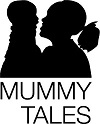 Mummy Tales by Maryanne W. Waweru is a platform dedicated to empowering its readers on different aspects of womanhood and motherhood. Read more motherhood experiences of Kenyan moms here. Connect with Mummy Tales on: FACEBOOK l YOU TUBE l INSTAGRAM l TWITTER
Mummy Tales by Maryanne W. Waweru is a platform dedicated to empowering its readers on different aspects of womanhood and motherhood. Read more motherhood experiences of Kenyan moms here. Connect with Mummy Tales on: FACEBOOK l YOU TUBE l INSTAGRAM l TWITTER














